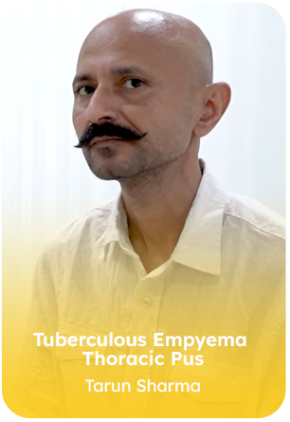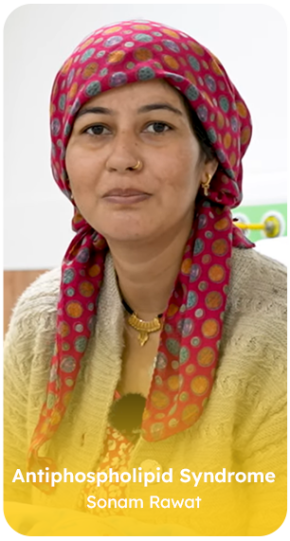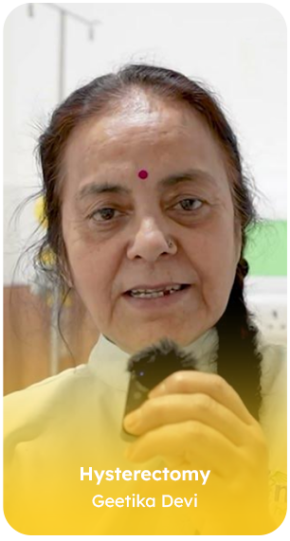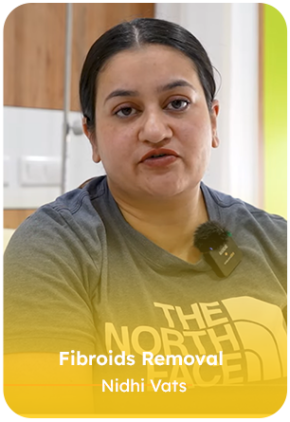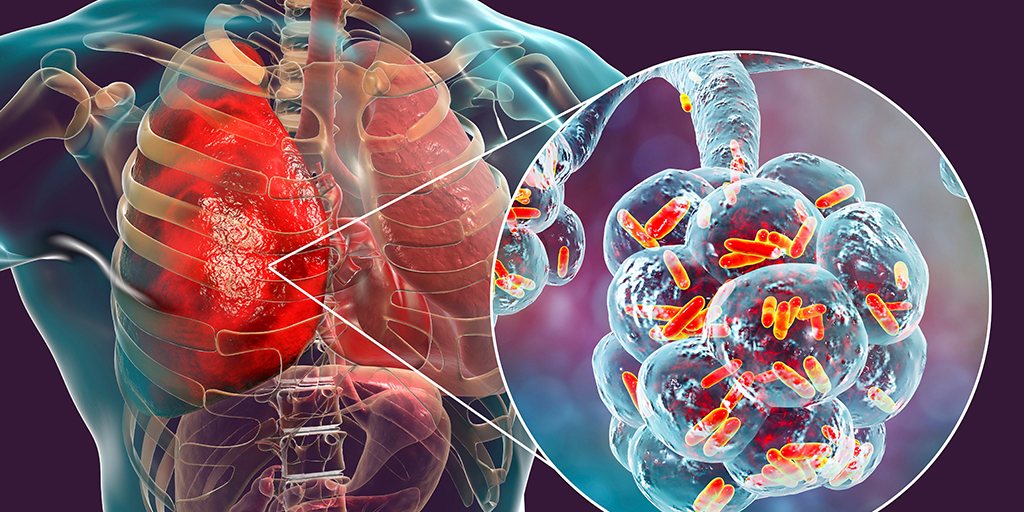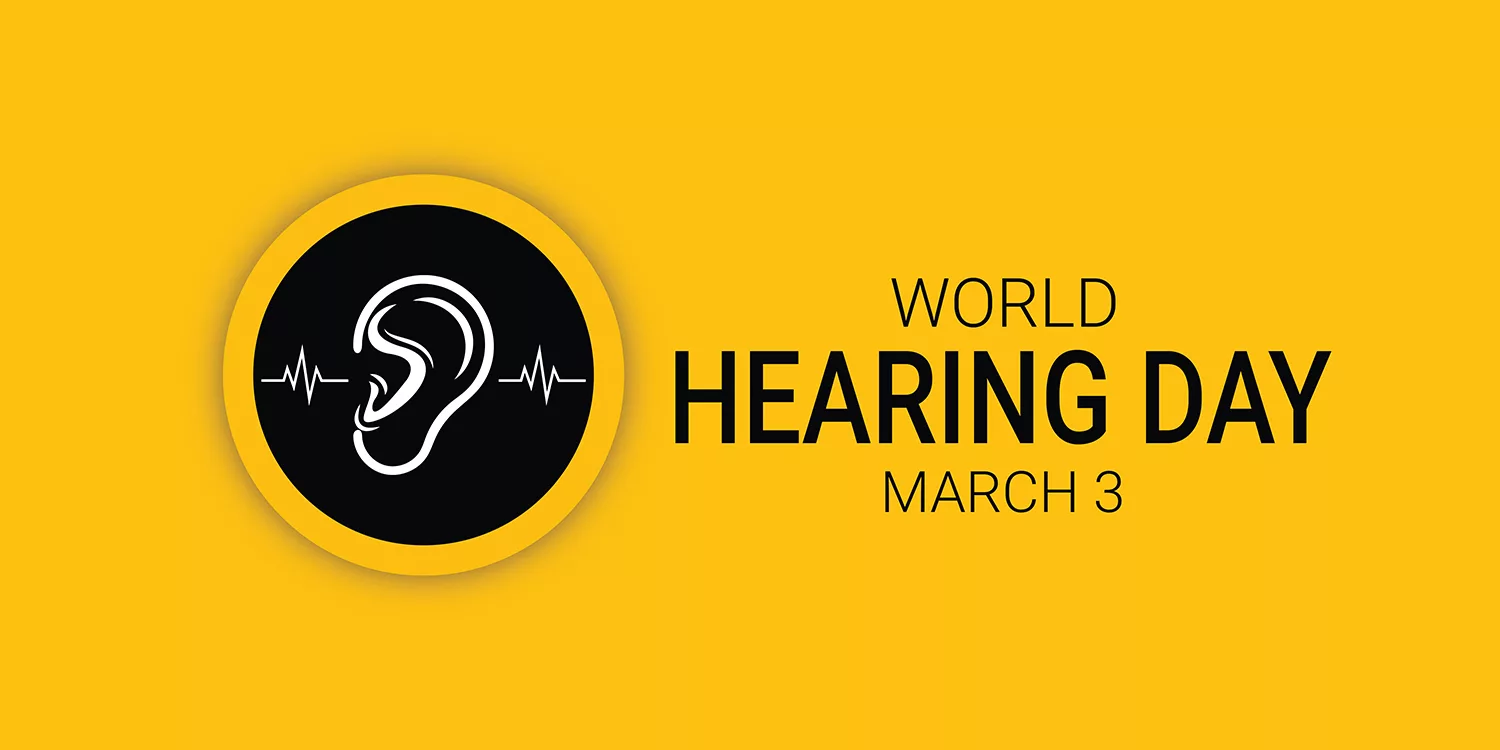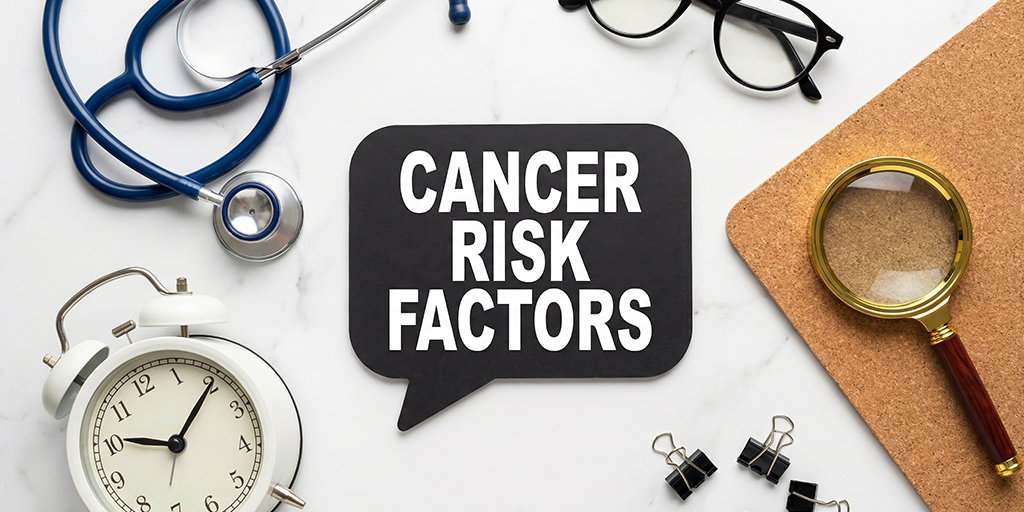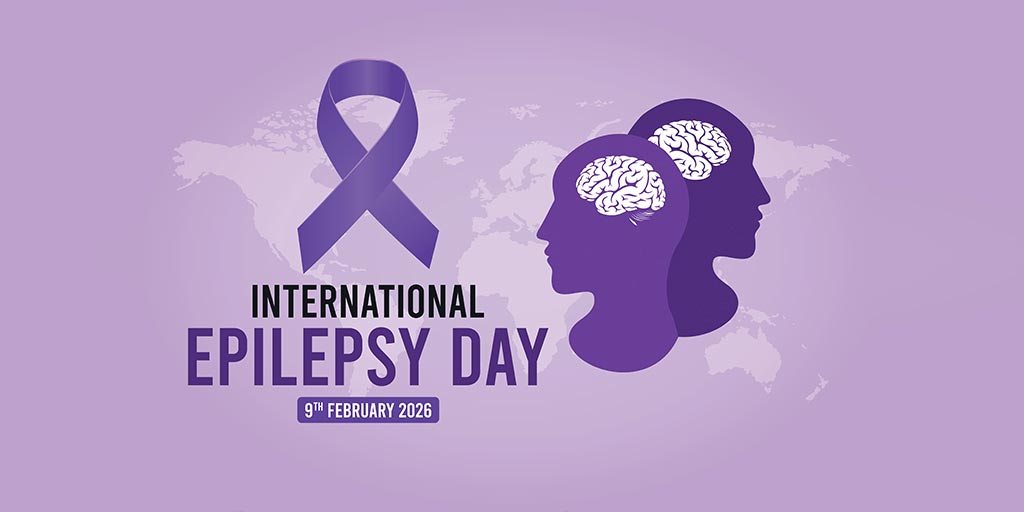At Graphic Era Hospital, we combine medical excellence with compassion to provide world-class neurological care, ensuring the best possible outcomes for patients. Our highly experienced team includes some of the best neurologists in Dehradun, specialising in diagnosing, managing, and treating disorders of the nervous system, and offering advanced care tailored to each patient’s needs. Whether you’re looking for a leading brain doctor or the best neuro physician in Dehradun, we have got you covered.
Doctors Available
Who is a Neurologist?
A neurologist is a medical expert specialising in diagnosing and treating disorders of the nervous system, which includes the brain, spinal cord, peripheral nerves, and muscles. These specialists handle a broad spectrum of conditions, from epilepsy, migraines, and strokes to more complex disorders like Alzheimer’s, multiple sclerosis, and Parkinson’s disease. At Graphic Era Hospital, our top neurologists in Dehradun combine extensive experience with cutting-edge diagnostic and treatment technologies to provide precise and compassionate care for every patient.
Expertise of Graphic Era Hopital
Graphic Era Hospital offers unparalleled neurological care, driven by advanced facilities, specialised services, and a multidisciplinary approach to ensure the best outcomes. Our expertise spans a wide array of subspecialties designed to address diverse neurological needs:
Electrophysiology Services
- Utilising advanced diagnostics like EEG (Electroencephalogram) to monitor brain activity and detect conditions such as epilepsy, seizures, and abnormal brain wave patterns.
- EMG (Electromyography) and Nerve Conduction Studies help assess muscle and nerve function to identify disorders like neuropathy, muscular dystrophy, and peripheral nerve injuries.
- These tools enable early detection and precision treatment, improving prognosis and patient outcomes.
Comprehensive Neuro Rehabilitation & Physical Therapy
- Customised rehabilitation programmes for patients recovering from strokes, neurological injuries, or surgeries.
- Focus on improving motor skills, balance, and coordination, with therapies tailored to individual needs and monitored by experts.
- Utilisation of modern rehabilitation equipment and techniques, including gait training and strength conditioning, to enhance mobility and independence.
Dedicated Stroke & Bollecay Clinic
- Emergency services for stroke management, including immediate thrombolytic therapy, which helps dissolve clots and restore blood flow to the brain.
- Long-term care strategies, such as cognitive training, speech therapy, and lifestyle modifications, are implemented to minimise the risk of recurrence.
- Advanced imaging technologies are used for early and accurate detection, ensuring timely intervention.
Paediatric Neurology Services
- Specialised care for children with neurological disorders, including epilepsy, autism spectrum disorders, developmental delays, and neurogenetic conditions.
- A child-friendly environment ensures minimal stress during assessments and treatments.
- Focus on early intervention techniques to optimise a child’s growth, learning, and quality of life.
State-of-the-Art Neuro Critical Care
- 24/7 critical care services for patients experiencing severe neurological conditions such as traumatic brain injuries, severe strokes, status epilepticus, and spinal cord injuries.
- The Neuro ICU is equipped with high-tech monitoring systems, ventilators, and expert intensivists to provide life-saving care and continuous observation.
Neuropsychiatry Services
- Comprehensive diagnosis and treatment of disorders at the intersection of neurological and psychiatric health, such as dementia, schizophrenia, and anxiety related to neurological conditions.
- Integration of counselling and therapy to support patients and families through complex mental and neurological challenges.
Signs You Need to Visit a Neurologist
Your nervous system plays a vital role in regulating every aspect of your body, so any disruptions should not be taken lightly. Ignoring potential warning signs could lead to serious health complications. Below are key symptoms that indicate it may be time to seek help from a neurologist doctor in Dehradun:
Chronic Discomfort
Persistent or recurring pain that does not improve with standard treatments may be a sign of a neurological issue, such as nerve damage, neuropathy, or conditions like fibromyalgia. A neurologist can pinpoint the root cause of your pain and recommend targeted treatments to alleviate your discomfort.
Severe Headaches
If you experience frequent, debilitating headaches, such as migraines or cluster headaches, it is crucial to consult a specialist. These headaches could be symptomatic of underlying conditions, such as hormonal imbalances, neurological inflammation, or even more serious disorders like a brain aneurysm. Early intervention from a good neurologist can provide effective relief and prevent escalation.
Dizziness or Vertigo
Experiencing recurring episodes of dizziness, lightheadedness, or a spinning sensation (vertigo) can interfere with your daily life. These symptoms may stem from issues within the brain, inner ear, or nervous system. A neurologist can conduct specialised tests to determine the cause and provide appropriate treatment.
Memory Issues or Confusion
Struggling with memory lapses, difficulty focusing, or episodes of confusion can be warning signs of neurological conditions such as dementia, Alzheimer’s disease, or other cognitive impairments. Seeking timely care from a neuro physician in Dehradun can help with early diagnosis and better management of these conditions.
Movement Disorders
If you experience tremors, muscle stiffness, unsteady walking, or difficulty with coordination, it may be indicative of movement disorders such as Parkinson’s disease, ataxia, or dystonia. Consulting a specialist ensures a thorough evaluation and access to treatments that can improve mobility and quality of life.
Tingling or Numbness
Persistent tingling, numbness, or “pins-and-needles” sensations in your hands, feet, or other areas of the body may indicate nerve damage or conditions such as multiple sclerosis, peripheral neuropathy, or even a pinched nerve. A neurologist can identify the underlying cause and recommend therapies to restore normal sensation.
Diagnosis of Neuro Disorders at Graphic Era Hospital
Diagnosing neurological conditions requires precision and a comprehensive understanding of the nervous system. At Graphic Era Hospital, our team of neurologists in Dehradun follow a systematic, step-by-step approach to uncover the root cause of symptoms. Here’s how we ensure an accurate diagnosis:
1. Detailed Medical History
Understanding your unique health journey is the first step in the diagnostic process. Neurologists will:
- Ask about your symptoms, including their onset, frequency, and severity.
- Review your medical history to identify any existing conditions or past illnesses that could impact your nervous system.
- Examine your family history for hereditary neurological conditions, such as epilepsy, migraines, or Alzheimer’s disease.
This comprehensive assessment helps neurologists identify potential risk factors and narrow down possible causes.
2. Physical and Neurological Exams
A physical and neurological examination is conducted to assess the functionality of your nervous system. During this process, the specialist evaluates:
- Muscle strength: To check for weakness or atrophy.
- Reflexes: To detect abnormal responses that might indicate nerve or spinal cord issues.
- Coordination and balance: To identify signs of conditions like cerebellar disorders or Parkinson’s disease.
- Sensory responses: To evaluate your ability to feel sensations, such as touch, temperature, and pain.
These tests allow the top neurologists in Dehradun to assess the areas of the nervous system that may be affected.
3. Advanced Diagnostic Tools
When symptoms require further investigation, neurologists turn to state-of-the-art diagnostic equipment to pinpoint the cause. These tools include:
- Magnetic Resonance Imaging (MRI): Provides detailed images of the brain and spinal cord, helping to detect tumours, strokes, or structural abnormalities.
- Computed Tomography (CT) Scans: Useful for identifying injuries, bleeding, or other acute conditions in the brain.
- Electroencephalogram (EEG): Monitors electrical activity in the brain, commonly used to diagnose epilepsy and other seizure disorders.
- Electromyography (EMG) and Nerve Conduction Studies: Assess the health of muscles and the nerves controlling them, often used to diagnose neuropathy or muscle disorders.
Why Choose Graphic Era Hospital for Neurological Care?
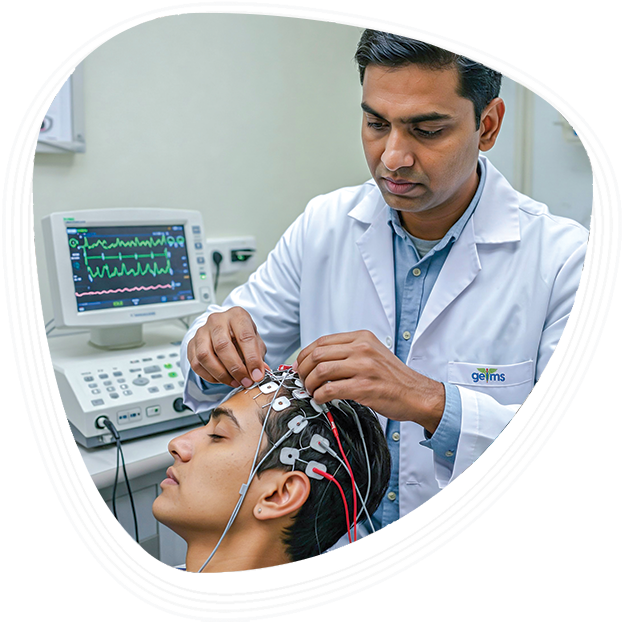
Tests for Diagnosing Neurological Disorders
Neurologists rely on advanced diagnostic tests to uncover the underlying causes of neurological symptoms and design effective treatment plans. At Graphic Era Hospital, our neuro physicians in Dehradun utilise cutting-edge tools to provide a comprehensive and accurate evaluation. Depending on your condition, the following tests may be recommended:
1. Imaging Tests
Imaging studies offer detailed insights into the structure and condition of the brain and spinal cord. Commonly used imaging tests include:
- Magnetic Resonance Imaging (MRI): This test produces highly detailed images, helping neurologists detect abnormalities such as tumours, multiple sclerosis, brain inflammation, and strokes. MRI is non-invasive and ideal for visualising soft tissues.
- Computed Tomography (CT) Scans: CT scans use X-rays to create cross-sectional images of the brain and spinal cord. These are particularly helpful in identifying acute conditions like head injuries, bleeding, or fractures.
2. Electroencephalogram (EEG)
An EEG records the brain’s electrical activity by placing small electrodes on the scalp. This test is primarily used to:
- Diagnose and monitor epilepsy or other seizure disorders.
- Evaluate abnormal brain activity linked to conditions like encephalitis or brain injuries.
- Assess sleep disorders, such as narcolepsy.
3. Electromyography (EMG) and Nerve Conduction Studies
These tests assess the health of nerves and muscles:
- Electromyography (EMG) measures electrical activity in muscles during rest and contraction. It is often used to diagnose muscle diseases or nerve dysfunctions.
- Nerve Conduction Studies evaluate how well electrical signals travel along a nerve, helping identify peripheral neuropathy, carpal tunnel syndrome, or nerve compression.
4. Blood Tests and Genetic Testing
Blood tests may be recommended to detect infections, autoimmune markers, or vitamin deficiencies contributing to neurological symptoms. Genetic testing might be advised if hereditary conditions such as Huntington’s disease are suspected.
Neurological Procedures available at Graphic Era Hospital
At Graphic Era Hospital, our team of neuro specialists in Dehradun is equipped to carry out a comprehensive range of neurological procedures to address various conditions affecting the brain, spinal cord, and nervous system. From minimally invasive techniques to advanced surgical interventions, our goal is to deliver effective and compassionate care. Here’s an overview of the procedures we provide:
Lumbar Punctures (Spinal Tap)
A lumbar puncture involves the extraction of cerebrospinal fluid (CSF) from the lower back using a thin needle. This procedure is crucial for diagnosing and managing conditions such as:
- Infections like meningitis or encephalitis.
- Neurological disorders like multiple sclerosis.
- Certain types of cancer, affecting the brain or spinal cord.
Botox Therapy
Botulinum toxin injections (Botox) are not just cosmetic treatments; they play a significant role in neurology. Our experts use Botox therapy to:
- Manage chronic migraines that don’t respond to conventional treatments.
- Treat movement disorders such as dystonia (involuntary muscle contractions) and spasticity.
- Provide relief from conditions like hemifacial spasms.
This minimally invasive procedure offers significant improvement in quality of life for many patients.
Deep Brain Stimulation (DBS)
Deep brain stimulation is a cutting-edge procedure for managing advanced neurological disorders. It involves:
- Surgically implanting electrodes in specific brain areas that control movement.
- Connecting these electrodes to a device that sends electrical impulses to regulate abnormal activity.
DBS is particularly effective for conditions such as: - Advanced Parkinson’s disease, reducing tremors and rigidity.
- Essential tremors and dystonia, improving motor function.
- Certain psychiatric conditions, such as obsessive-compulsive disorder (OCD), in select cases.
This innovative treatment has transformed lives by offering relief when other therapies have failed.
Nerve and Muscle Biopsies
In cases where nerve or muscle disorders are suspected, a small sample of tissue is removed for laboratory analysis. This helps in diagnosing conditions like neuropathies, muscular dystrophy, or inflammatory muscle diseases.
Neuro-Endovascular Procedures
Our specialists also perform minimally invasive procedures to treat vascular issues in the brain and spine, such as:
- Coiling for brain aneurysms.
- Stenting for narrowed blood vessels.
- Clot removal in stroke patients.
Stereotactic Procedures
Using advanced imaging guidance, these procedures allow for precise targeting of brain abnormalities. They are often employed for biopsies, tumour removal, or radiosurgery for lesions.
Neurological Conditions Treated Graphic Era Hospital
At Graphic Era Hospital, our neurologist doctors in Dehradun specialise in diagnosing and managing a broad spectrum of diseases and disorders affecting the nervous system, including the brain, spinal cord, and peripheral nerves. Here are some of the common conditions routinely treated by our neuro doctors in Dehradun:
Epilepsy and Seizure Disorders
Epilepsy is a neurological condition characterised by recurrent seizures caused by abnormal electrical activity in the brain. Neurologists:
- Diagnose the type and triggers of seizures through EEGs and imaging studies.
- Develop personalised treatment plans, including medication or surgical options, to control seizures and improve quality of life.
Stroke
Strokes occur when blood flow to the brain is interrupted, causing brain damage. Prompt care is critical. Neurologists:
- Provide acute care, including thrombolysis (clot-dissolving treatments) for ischemic strokes.
- Assist in post-stroke rehabilitation to restore movement, speech, and cognitive function.
Early intervention by our best neuro doctors in Dehradun can save lives and prevent long-term complications.
Movement Disorders
Movement disorders such as Parkinson’s disease, essential tremors, and dystonia can significantly affect daily life. Neurologists:
- Use medications and advanced treatments like deep brain stimulation (DBS) to manage symptoms.
- Help patients regain control over motor functions and improve mobility.
Dementia and Cognitive Disorders
Dementia includes conditions like Alzheimer’s disease and vascular dementia, which impair memory, thinking, and reasoning. Neurologists:
- Perform cognitive assessments to diagnose the condition accurately.
- Offer therapies and lifestyle modifications to slow progression and enhance quality of life for both patients and caregivers.
Neuropathies
Peripheral neuropathy affects the nerves outside the brain and spinal cord, causing pain, numbness, or weakness. Neurologists:
- Identify underlying causes, such as diabetes, infections, or injuries.
- Provide pain management, physiotherapy, and nerve repair treatments to alleviate symptoms.
Multiple Sclerosis (MS)
MS is an autoimmune condition where the immune system attacks the protective covering of nerves. Neurologists:
- Offer treatments such as immunomodulators and physical therapy to manage flare-ups and delay progression.
- Provide ongoing support to improve patients’ mobility and reduce relapses.
Headache and Migraine Disorders
Chronic headaches, including migraines and cluster headaches, are common conditions treated by neurologists. They:
- Identify triggers and prescribe preventive medications or therapies, such as Botox for severe migraines.
- Offer holistic approaches, including dietary changes and stress management techniques.
Neurological Infections
Conditions like meningitis and encephalitis, caused by bacterial or viral infections, require immediate attention. Neurologists:
- Administer antiviral or antibiotic treatments.
- Monitor and manage complications to prevent long-term damage to the nervous system.
Spinal Cord Disorders
Disorders such as herniated discs, spinal stenosis, or traumatic spinal injuries are managed by neurologists. They:
- Provide pain management, physical therapy, and, if necessary, coordinate surgical interventions.
- Focus on restoring mobility and preventing further complications.
Neurology Conditions Treated at Graphic Era Hospital
Other Specialities
Patient Stories
Blog
Frequently Asked Questions (FAQs)
Who is the best neurologist in Dehradun?
Graphic Era Hospital is home to some of the top neurologists in Dehradun, known for their expertise in diagnosing and treating various neurological conditions. Our specialists use advanced techniques to provide the best care possible.
Which hospital is best for neurological problems?
Graphic Era Hospital is considered one of the best hospitals for neurological care in Dehradun, offering comprehensive services backed by experienced neurologists and cutting-edge technology. Our team is dedicated to providing personalised care for a wide range of neurological disorders.
When should I make an appointment with a neurologist?
You should see a neurologist if you experience symptoms like persistent headaches, memory problems, unexplained numbness or tingling, dizziness, or movement difficulties. Early intervention can lead to better management and outcomes for neurological conditions.
Do neurologists treat nerve issues?
Yes, neurologists are specialists in diagnosing and treating nerve-related issues, including conditions like neuropathy, nerve pain, numbness, and weakness. They can also manage disorders that affect the central and peripheral nervous systems.
Is a neurologist a surgeon?
Not all neurologists are surgeons. Neurophysicians focus on diagnosing and treating neurological conditions medically, while neurosurgeons specialise in performing surgeries on the brain, spinal cord, and nerves.
How can I book an appointment with a neurologist at Graphic Era Hospital, Dehradun?
You can book an appointment with a neurologist at Graphic Era Hospital by calling our reception or visiting our website to schedule a consultation. Our team will assist you in finding the best specialist based on your needs.
What procedures/tests do neurologists perform?
Neurologists perform a variety of tests, including MRIs, CT scans, EEGs, and lumbar punctures. These help in diagnosing conditions like epilepsy, strokes, brain injuries, and other neurological disorders, ensuring accurate and timely treatment.

